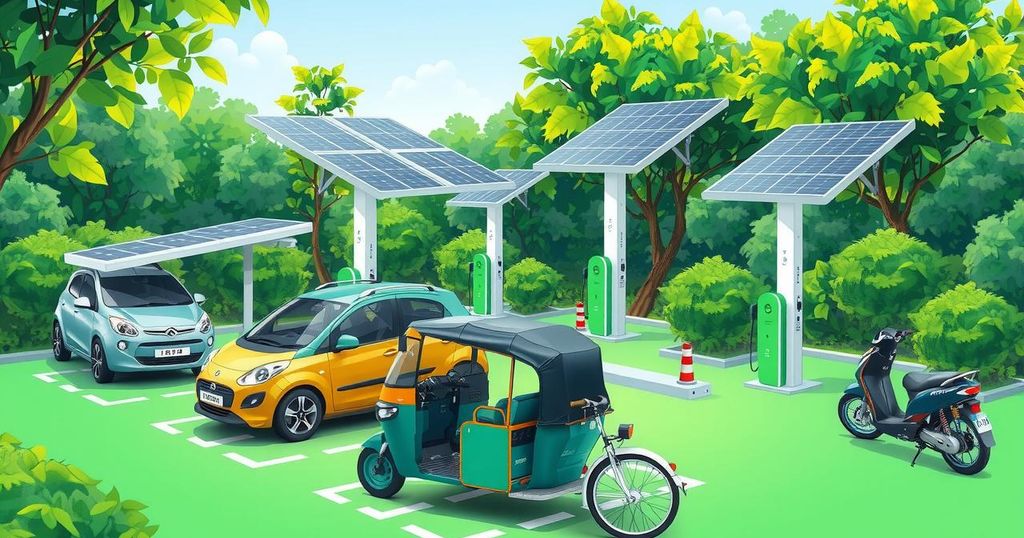Luckin Partners with METS, Appoints Johnson as Nigeria Sales Rep

- Luckin Innovation Technology Co. Limited has appointed Amb. (Dr) Olakunle Johnson for Nigeria.
- The company partnered with Matan e-Transportation System to promote electric mobility.
- Ambassador Johnson will lead Luckin’s sales operations and set up a local assembly plant.
- METS aims to create a solar-powered charging network throughout Nigeria.
- An extensive acquisition of electric vehicles will aid food distribution logistics.
Luckin’s Strategy to Boost Electric Mobility in Nigeria
Luckin Innovation Technology Co. Limited, under the leadership of CEO Wang Licai, has made a significant move by appointing Ambassador (Dr) Olakunle Johnson as its official representative in Nigeria. This appointment is aimed at driving forward the company’s commitment to innovation and sustainable mobility within the country. Moreover, it marks the beginning of a strategic partnership with the Matan e-Transportation System (METS), which is an ambitious initiative under the MFBF Group Projects. Together, they aspire to transform Nigeria’s transportation system by introducing electric mobility solutions.
Ambassador Johnson Takes Charge of Nigeria Sales Operations
The announcement, which was supervised by Luckin’s Overseas Sales Director Angela Xie, is seen as a pivotal step in the company’s plans for expansion into the African continent. Ambassador Johnson, known for his entrepreneurial ventures and as the head of several initiatives such as the MATAN Food Bank Foundation, will manage the sales operations for Luckin in Nigeria. His responsibilities extend to coordinating the setup of a local assembly plant, which is expected to aid in establishing a dedicated showroom for Luckin’s electric vehicle products. Collaboration between METS and Luckin seeks to enhance Nigeria’s transition towards clean mobility, featuring a rollout that encompasses electric cars, tuk-tuks, and two-wheelers, all powered by solar energy and state-of-the-art battery systems.
Building Local Infrastructure for Sustainable Transport
To ensure the success of their initiative, both Luckin and METS will work together to create a comprehensive network of solar-powered charging stations. This will not only promote the usage of clean energy but also help to alleviate the dependence on fossil fuels. The ultimate goal is to make electric vehicles more accessible to the general public while providing an eco-friendly alternative to traditional transport methods. Furthermore, Ambassador Johnson’s role includes establishing a vehicle assembly plant in Nigeria, aimed at facilitating local production of electric vehicles. This local manufacturing effort is expected to significantly reduce import costs, generate job opportunities, and support Nigeria’s overall industrial development.
Creating Jobs and Combating Food Insecurity in Nigeria
MFBF is also set to purchase 10,000 electric vehicles that will be utilized in community farming and logistics for food distribution. This bold initiative aims to assist in transporting agricultural products from farms to various food banks, helping vulnerable populations in more than 774 local government areas in Nigeria. Additionally, a digital training program for “feeding marshals” is anticipated to enhance the distribution efficiency, aligning with the mission to tackle food insecurity and bolster rural development. The METS project goes beyond just environmental concerns—it’s also about job creation throughout the electric vehicle value chain, encompassing areas like manufacturing, maintenance, and the development of charging infrastructure, all of which tie back to Nigeria’s aspirations for a greener economy within the framework of global climate objectives.
In summary, Luckin Innovation’s partnership with Matan e-Transportation System marks a significant progression towards revamping Nigeria’s transportation landscape through electric mobility. Ambassador Johnson’s appointment as the Nigeria Representative will drive local initiatives aimed at fostering sustainability and innovation. The collaboration is poised to not only introduce advanced electric vehicles in the market but also to create job opportunities, enhance food distribution, and contribute to Nigeria’s economic growth while aligning with global climate goals.




